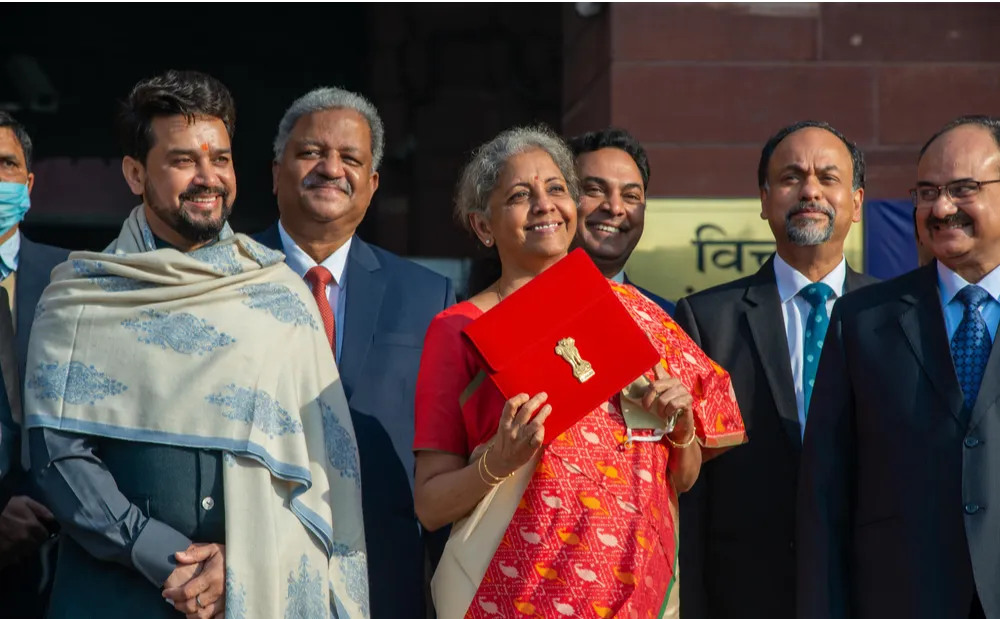Business News
Budget wish list: From tax relief to removal of angel tax, here's what industries & sectors are seeking
.png)
3 min read | Updated on July 09, 2024, 16:57 IST
SUMMARY
Union Finance Minister Nirmala Sitharaman will present her seventh Budget on July 23. This would be the first full budget of Narendra Modi government after Lok Sabha Elections 2024.

Union Budget 2024-25 will be presented on July 23, 2024.
Finance Minister Nirmala Sitharaman will present the Union Budget 2024-25 on July 23, 2024. Ahead of the budget, representatives from various industries and social sectors have shared suggestions regarding their expectations from the mega event.
Tax relief
The Associated Chambers of Commerce and Industry of India (ASSOCHAM) demanded tax relief for taxpayers, especially for those in the lower income brackets, to boost consumption.
"Rationalise and simplify the tax system to improve compliance and promote investment. Consider measures such as reducing corporate tax rates, phasing out tax exemptions, and broadening the tax base to make the tax regime more efficient and equitable," ASSOCHAM said.
It also urged structural reforms in the agriculture section to improve productivity and income opportunities for farmers.
Removal of angel tax
The Department for Promotion of Industry and Internal Trade or DPIIT has endorsed removing angel tax on startups.
In September 2023, the Income Tax Department notified new angel tax rules, including a mechanism to estimate the shares allocated by unlisted startups to investors.
While previously the angel tax—a tax imposed on capital received on the sale of startup's shares above the fair market value—applied only to local investors, the budget for the financial year 2023-24 broadened its ambit to include foreign investments.
DPIIT Secretary Rajesh Kumar Singh said, "Based on the consultation with the startup ecosystem that we have here, we have recommended that in the past as well, and I think we have recommended it this time also, but ultimately, an integrated view will be taken by the Ministry of Finance".
Expansion of the PLI scheme
Rumki Majumdar, Economist at financial advisory firm Deloitte India, suggested that the Union government must expand the scope of production-linked incentive (PLI) schemes, mainly for sectors that can create employment, such as handicraft, textiles and leather.
She also suggested that schemes must be continued in sectors like auto, electronics and semiconductors.
Incentivise R&D investments
The pharmaceutical sector urged the government to incentivise R&D investment, offer corporate tax concession and establish an effective intellectual property rights regime to promote the domestic pharma industry.
Anil Matai, Director General, Organisation of Pharmaceutical Producers of India (OPPI), said, "Recognising the high-risk, long-gestation nature of R&D, we suggest extending the scope of section 115BAB of the Income Tax Act, 1961 to companies solely engaged in pharmaceutical research and development and providing a 200 per cent deduction rate on R&D expenditures".
Simplify visa norms
Travel Agents Association of India (TAAI) has requested the Centre to address longstanding concerns, including infrastructural development, reduction of aviation turbine fuel costs, simplification of visa requirements, rationalisation of GST rates and credit, abolition of TCS (tax collected at source) on outbound travel, tax exemption on leave travel allowance (LTA), and removal of TDS on automated bookings.
By signing up you agree to Upstox’s Terms & Conditions
About The Author
Next Story

